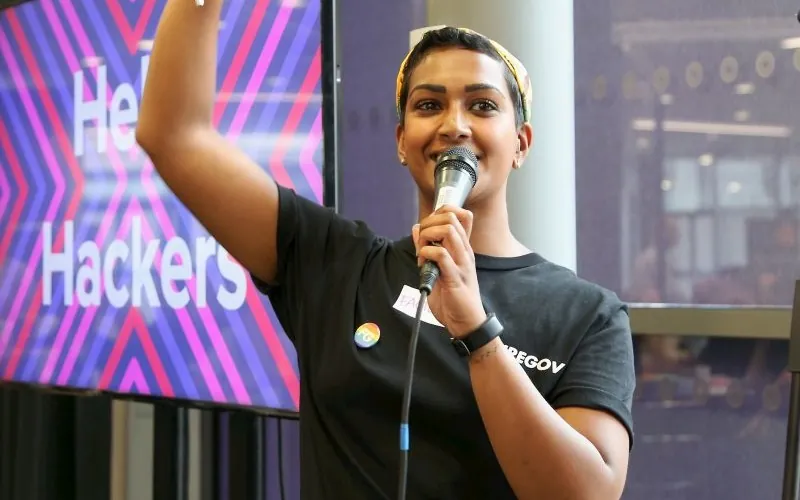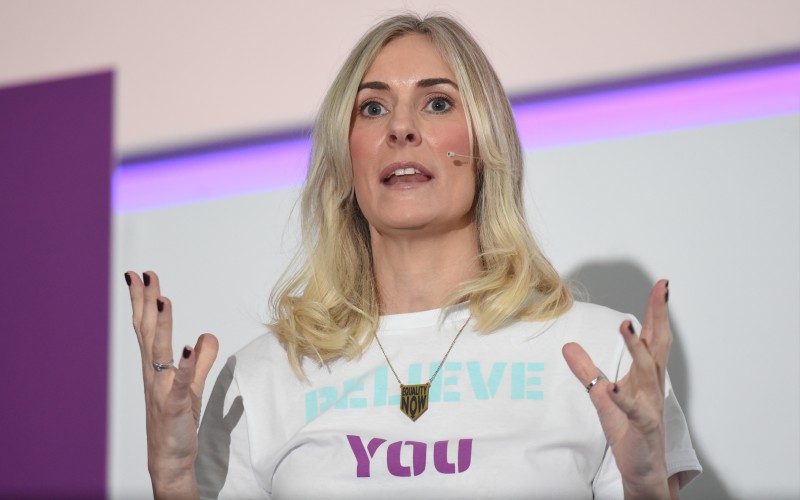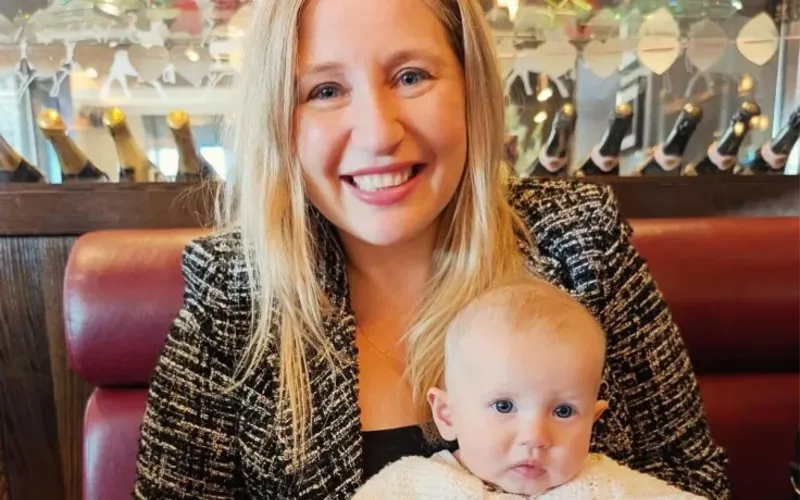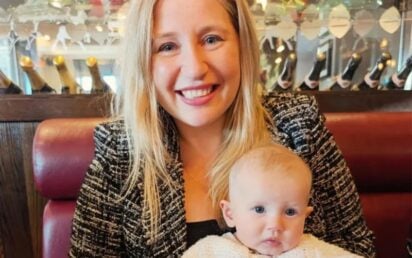The news of a serial female entrepreneur being denied access to London Tech Week made the front page of The Times after sparking outrage in the community.
Davina Schonle, founder and CEO of Birmingham-based Humanvantage AI, was refused entry to the event for bringing her eight-month-old daughter along.
The former CEO of DS Consulting Group took to LinkedIn to share the story. The post, which garnered thousands of reactions and comments, included the paragraph: “It’s a 3 hour drive one way for me to come to London.
“At this stage I limit how many hours I am away from my baby girl. This is about new environments for her as much as it is about me. I should be able to build my company with her by my side.”
Another entrepreneur who understands what it means to juggle family life and business commitments is Vimla Appadoo, co-founder and chief culture officer at Honey Badger, which advises businesses on inclusivity, diversity and culture.
Vimla (pictured below) herself undertook a three-hour journey to speak at BusinessCloud’s Northern Leaders Futures event at KPMG in Leeds this week – with five-month-old son Adi in tow.

“They should have absolutely made it more accessible [for Davina to attend],” she told me as Adi gurgled away. “If they’ve turned up with a baby, at least try and figure out what the wiggle room is – they’re there already, they’ve made that commitment, so find out how to make it work.
“I also don’t understand why organisers don’t make it clear from the outset whether an event is child-friendly or not. Just: ‘I can come to this…. or I can’t.’”
Empowering parents
Beckie Taylor, exited co-founder of Tech Returners, runs inclusive events herself as co-founder of Empower.
“London Tech Week obviously hadn’t really thought about it [despite the fact that] they were targeting that demographic, with a lot of uptake around the women at the event,” she said.
“It’s unfortunate, but I think that it’s hurt their reputation. They’re going to have to think about it for next year.”
A few years ago I interviewed Beckie (pictured below) at the DTX conference in Manchester after she spoke on a panel compered by my colleague Chris Maguire.

She had her daughter with her – and simply handed her over to her Tech Returners co-founder James Heggs, who played games with little Emmie while we chatted.
Beckie, who also spoke at the event this week in Leeds, continued: “So the child [at London Tech Week] was in a pushchair, right? I don’t understand what would have been the impact.
“The child wouldn’t have caused any challenges, and I think their response hasn’t really covered any of that. It’s just very formal.”

Accessibility
Beckie says making events accessible can include concessionary ticketing, making it clear that mum or dad are welcome to bring their kids along and providing a quiet space for them if needed.
“When your child starts getting a bit grouchy at an event, you take yourself out: we had a lady at our Empower Female Founders Conference this year who apologised for leaving an hour towards the end because her child was tired and not being stimulated, while there were quite a lot of people around. She was conscious of not spoiling other people’s experience.
“I really do not think we would ever have a situation where there are a little group of children at the front, near the stage, and you can’t hear the speakers. It just wouldn’t happen.
“The female founder who went to London Tech Week had probably planned her day – dedicated talks that she wanted to go to, things that she wanted to learn – and then if, within that, she had needed to leave, she would probably have gone to a quiet space or a cafe and managed it.
“Why should she miss out on all that knowledge and connection just because she was pushing a pushchair?
“It’s very different when you’ve got your own business: when you’ve got a baby, they almost have to come with you, or your business stops.”
Vimla, who says it’s still not common for a man to take their kids to events, also has a daughter aged four.
“I think there’s more of an understanding now [in business] that parents have kids and that those kids have needs,” she concluded.
“When I have had him on me – or been breastfeeding – in client meetings, no one’s batted an eyelid.
“But a lot of my clients are women-led organisations, so I don’t know if that has something to do with it.”

